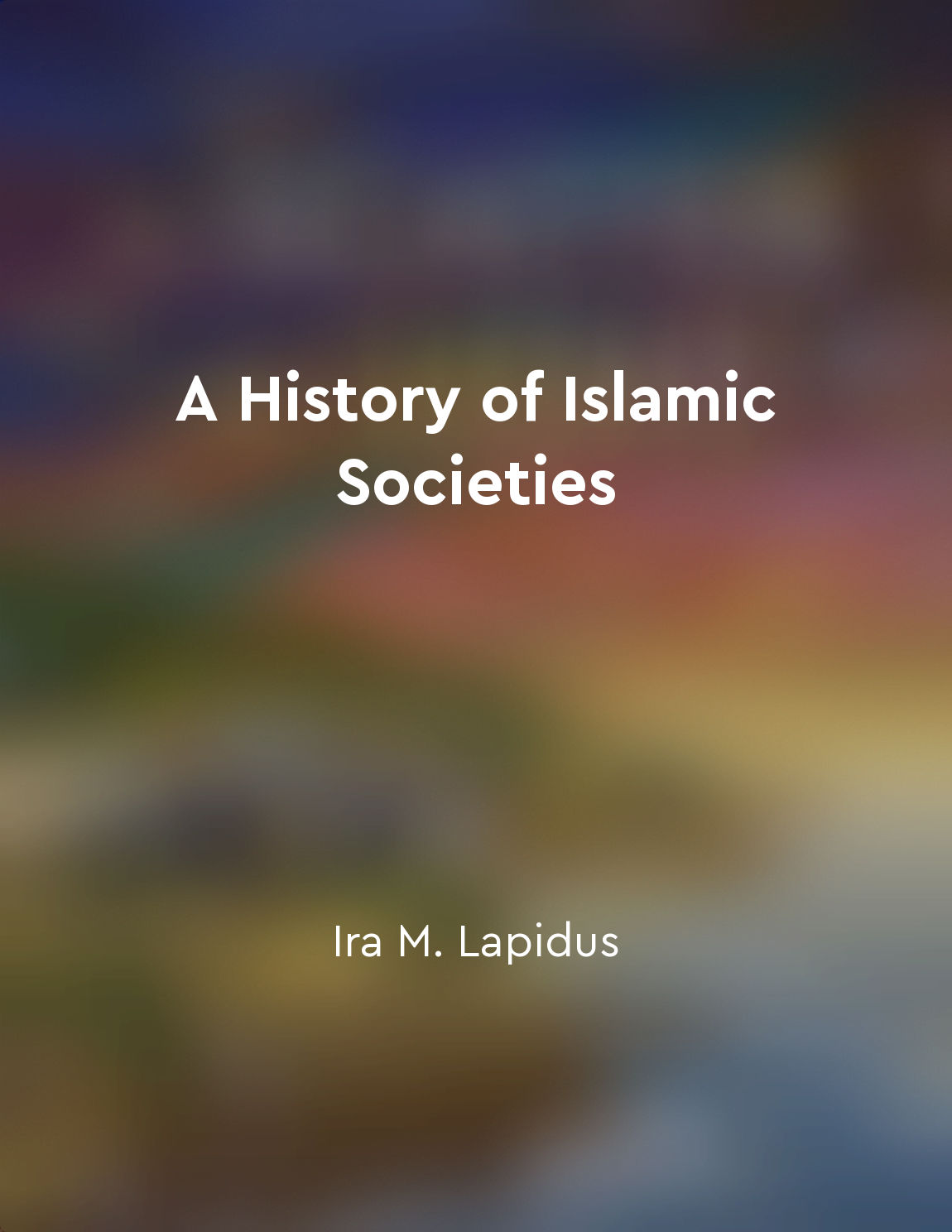The role of women in Islamic societies varied over time from "summary" of A History of Islamic Societies by Ira M. Lapidus
The position of women in Islamic societies has not been static; rather, it has evolved and changed significantly over the centuries. In the early years of Islam, women held important roles in society as mothers, wives, and community leaders. They were actively involved in economic activities, such as trade and agriculture, and played crucial roles in the transmission of knowledge and culture. However, as Islamic societies expanded and became more stratified, women's roles became more restricted and defined by patriarchal norms. During the medieval period, the position of women in Islamic societies continued to change. While some women enjoyed a degree of autonomy and freedom, particularly in urban centers where they could engage in commercial activities and participate in intellectual and cultural life, others faced increasing restrictions on their movements and access to education. The rise of Islamic jurisprudence further codified and regulated women's roles, leading to the implementation of strict dress codes and segregation of the sexes in public spaces. The early modern period witnessed further shifts in the roles of women in Islamic societies. With the advent of colonialism and modernization, new opportunities and challenges emerged for women. While some women took advantage of increased access to education and employment outside the home, others faced new forms of marginalization and discrimination. The spread of modern ideologies, such as feminism, also influenced the ways in which women in Islamic societies perceived their roles and sought to assert their rights. In the contemporary era, the role of women in Islamic societies continues to be a topic of debate and contention. While some countries have made significant strides in promoting gender equality and women's rights, others continue to enforce strict interpretations of Islamic law that limit women's freedoms and opportunities. The diversity of experiences and perspectives among women in Islamic societies highlights the complexity and dynamism of gender relations in these contexts.Similar Posts
Chronicles challenges of being a modern princess
The modern princess faces a multitude of challenges that are often hidden from the public eye. In "Princess: Secrets to Share,"...
Woman's experiences are shaped by society
In the complex web of societal structures and norms, woman finds herself woven into a fabric not of her own making. From the mo...
Women should have opportunities for intellectual growth
Women, just like men, possess the capacity for intellectual growth. Denying them opportunities to develop their minds is a grav...
Women should have economic independence
It is essential for women to have economic independence. This independence is not only necessary for their individual well-bein...
Challenging stereotypes leads to progress
In order to make progress in our efforts to lift up women and girls, we must be willing to challenge the stereotypes that hold ...
Feminism is a vehicle for women's liberation and empowerment
Women have long been oppressed and limited by societal norms that have confined them to the domestic sphere. Through the lens o...

